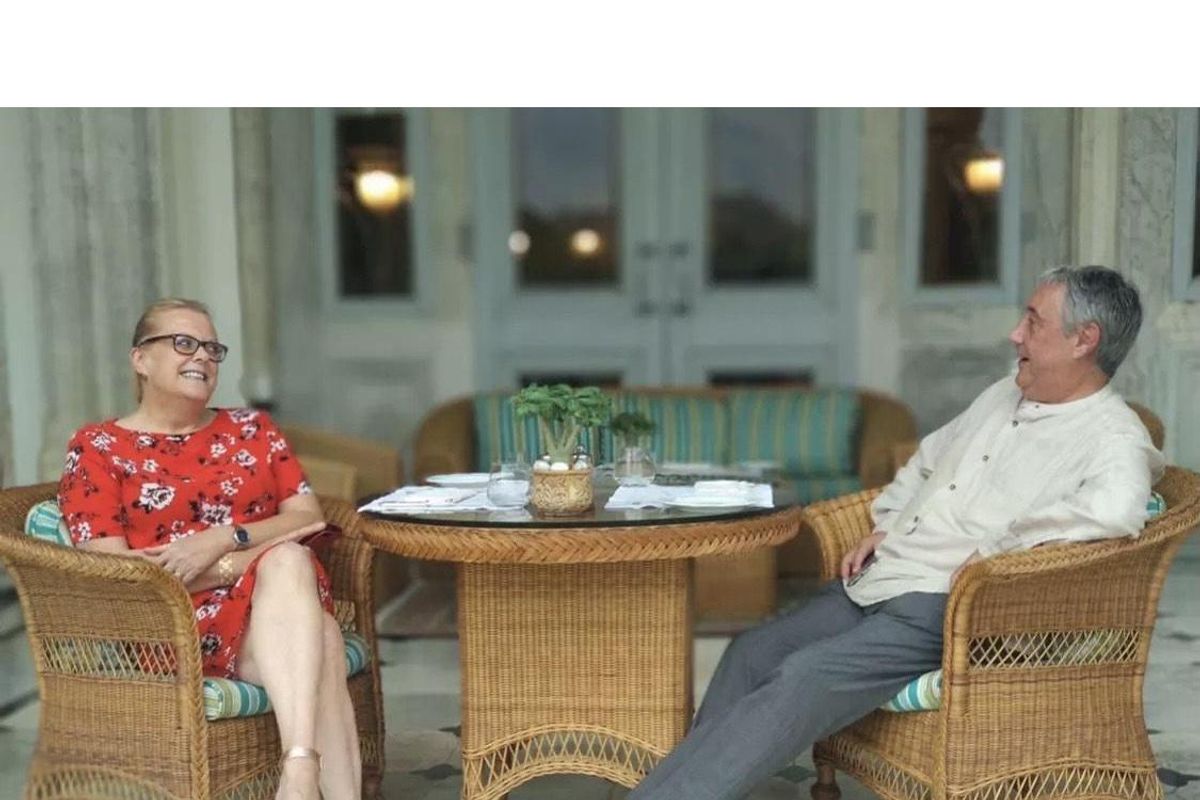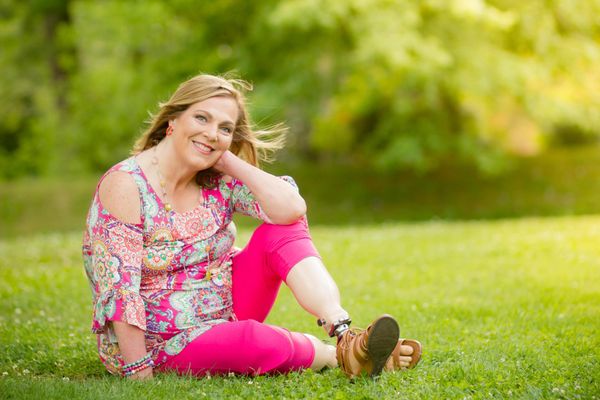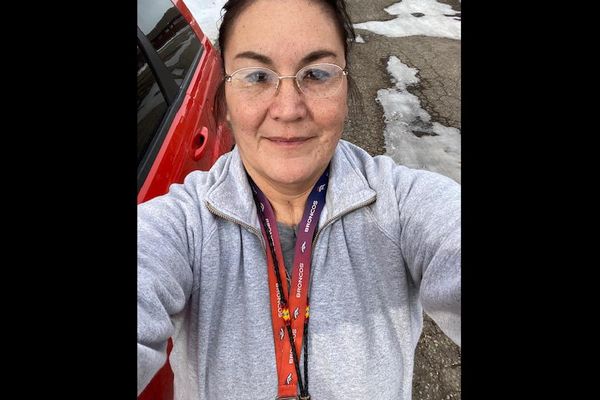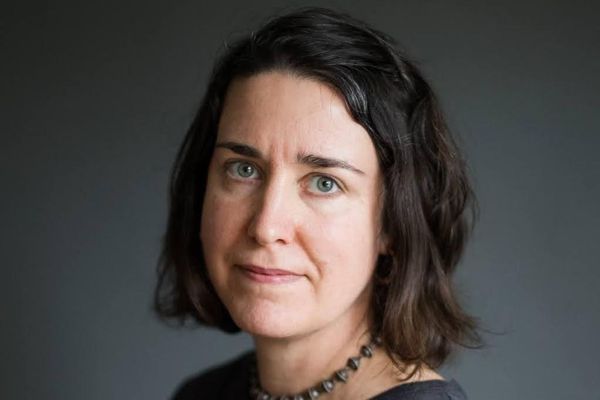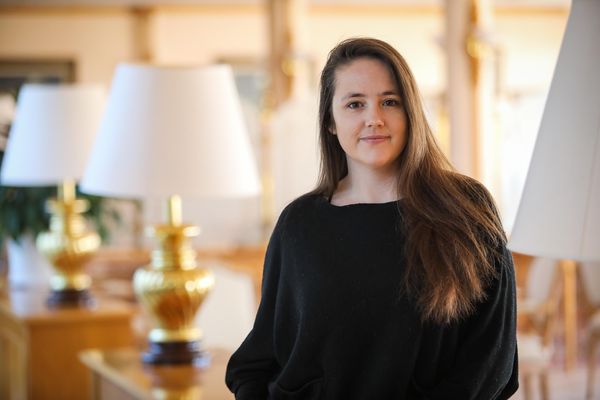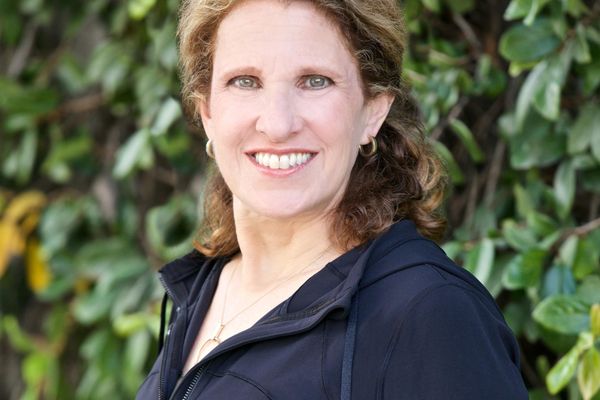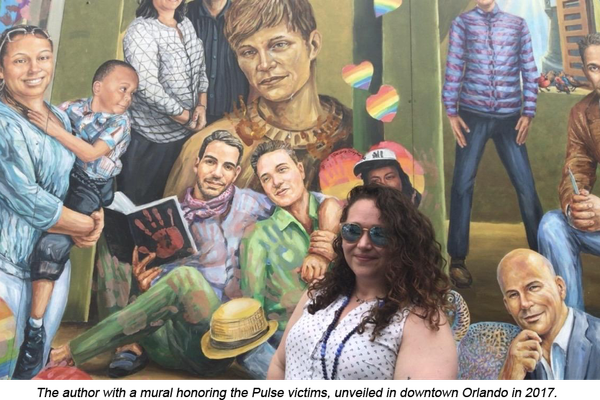As told to Alex Fulton
On a perfectly normal day in 2014, I went to the bathroom and noticed bright red blood in my urine. I've had a hysterectomy, a surgery to remove my uterus, so I knew it couldn't be my period. "That's strange," I thought, concerned.
When I went to the bathroom again later that day, I saw more blood. I knew something was wrong. I called my doctor, who was able to see me within 24 hours. I was diagnosed with a urinary tract infection (UTI) and given antibiotics.
I was also sent to a urologist at a local hospital. I saw him for the next two years as I struggled with constantly recurring UTIs. Every time one would clear up after treatment, I'd get another one. Eventually I was put on a low dose of antibiotics that I took every day in an attempt to prevent the infections, but they kept coming.
Around six months into my time with the urologist, he tried to do a procedure called a cystoscopy that would allow him to see inside my bladder and urethra — the tube that carries urine out of the body. But because I had a UTI at the time, it was like putting a camera into a snowstorm. He couldn't see anything. I was given a round of IV antibiotics, then sent home. The cycle continued.
Meanwhile, I felt awful. I was losing weight. I had severe pain in my lower back. And I was so, so tired. I kept thinking, "Is this going to be my life? Am I just going to feel terrible forever?"
Finally, in August of 2016, I told my doctor I wanted a second opinion. I saw another provider who scheduled a second cystoscopy, since the first one hadn't shown anything. My parents insisted on accompanying me to the appointment, and we chatted happily in the waiting room until my name was called.
Within a few seconds of turning the camera on to start the procedure, the doctor stopped. He and the nurse were silent. I looked at the screen and saw what looked like a big piece of broccoli inside my bladder. "What's that?" I asked.
"Well, it's not good," the doctor said. I had bladder cancer.
I was shocked. I was only 53 years old. I had seen a urologist for two years, and he never even brought up cancer as a possibility. I think it didn't occur to him because I was relatively young. The average age of people diagnosed with bladder cancer is 73.
My initial shock was followed closely by a strange sense of relief. I'd been sick for so long, and now I finally understood why. I was deeply hopeful that the cancer could be treated, and I'd feel well again.
Because the tumor was progressing very quickly, my doctor recommended a surgery called a radical cystectomy to remove my bladder, appendix, cervix, rear vaginal wall and part of my small intestine.
The surgery was effective, but recovery took time. People don't always talk about the ways a radical cystectomy changes your relationship with your body. You have to adjust to living without a bladder, for one thing. I have a stoma, an opening in my abdomen that allows waste to be diverted into a pouch. Luckily, I was able to work with a nurse who showed me what to do and gave me some really helpful tips.
The cancer was gone, and I was determined to get better. I was also determined to spread the word about bladder cancer, especially among young people and healthcare providers who may not think to look for it.
Five months after my surgery, I decided to celebrate being cancer-free by doing something big to increase awareness about bladder cancer. My husband and I set out for India, where we signed up for an event called the Rajasthan Rickshaw Rally to raise money for Fight Bladder Cancer.
We drove an auto rickshaw over 2,000 miles from the top to the bottom of India, and it was the adventure of a lifetime. I'm proud to say we finished 10th out of 86 teams! I've continued working with Fight Bladder Cancer, although these days I stick closer to home.
I never would've done anything like that trip to India before cancer. I had a high-powered job and made myself available 24/7 for it. My life was work and my career. Now I devote my time to my family and helping others who are dealing with a bladder cancer diagnosis. My cancer showed me what really matters to me.
My experience also taught me to never be afraid of asking a healthcare provider for a second opinion. I've been quite surprised by how many people, especially younger people, are reluctant to ask. They don't want to upset anyone. But I've found that many providers are actually quite happy to help patients who seek a second opinion.
I don't spend too much time dwelling on whether things would've been different if my bladder cancer had been diagnosed sooner, but I'm passionate about helping people advocate for themselves when it comes to making sure their health concerns are heard. I believe it's empowering to take control of your own destiny.
Bladder cancer has most certainly changed my life, but ultimately it has made me a better person. I truly don't sweat the small stuff anymore. If something is bothering me, I ask myself, "Does it really matter?" Nine times out of 10, the answer is no.
My cancer diagnosis put everything in perspective. It taught me not to take anything for granted. Your life can change in a moment. Mine did, in a way I never thought it would.
For more information:
Bladder Cancer Advocacy Network
CancerCare
National Cancer Institute
This resource was created with support from Astellas.
- What Women Need to Know About Urothelial Bladder Cancer ... ›
- Fast Facts: Everything You Need to Know About Urothelial Bladder ... ›
- A Conversation With Dr. Sarah Psutka About Bladder Cancer - HealthyWomen ›
- Traveling During Treatment for Urothelial Bladder Cancer (UBC) - HealthyWomen ›
- How I Knew I Had Bladder Cancer - HealthyWomen ›

